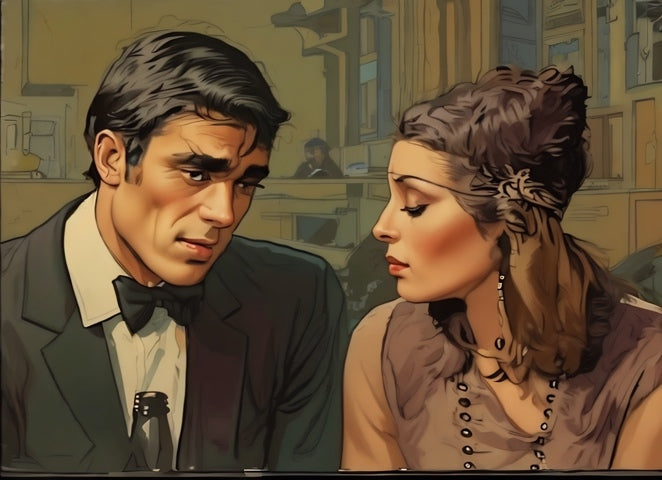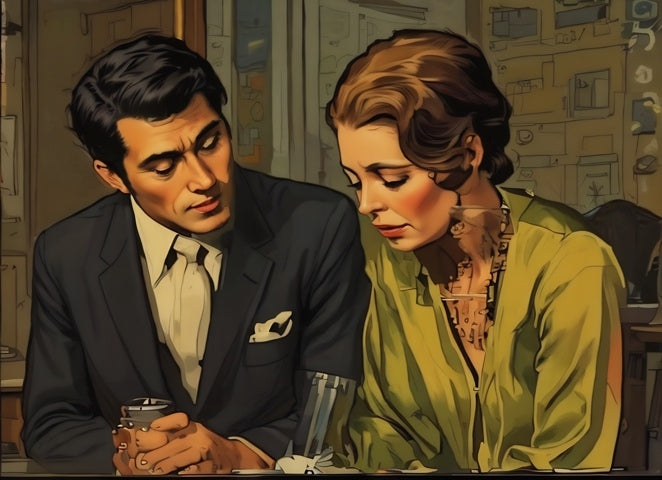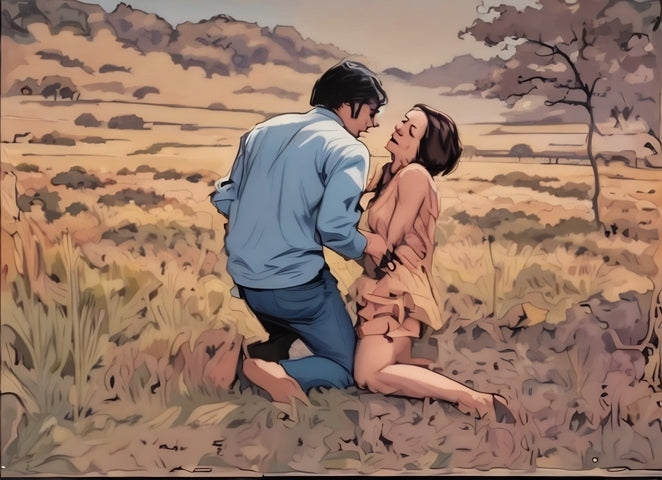The Fabulous Bastard From Chicago (1969) 720P
The Fabulous Bastard From Chicago (1969) 720P
🌱 Wide Selection
💪 Expert Advice
🚚 Fast Delivery
Couldn't load pickup availability
Come visit us at https://odysee.com/@WildCrazySixtiesSeventies:b where you can also rent our movies!
The year is 1927 in the midst of Chicago’s notorious Beer Wars, a period characterized by intense and violent conflict between rival gangs vying for control of the lucrative illegal alcohol trade. There are speakeasies littered throughout the city. Machine guns are still legal but alcohol is now constitutionally banned. Liquor on the east side is supplied by Steve Desmond, or the fabulous bastard, the nicest and wimpiest gangster ever portrayed on film. Desmond is a veteran of WW I and even served some time before running the illegal liquor business on the east side. Fats Percelli runs the north side and starts muscling in on Desmond’s east side. Desmond reminds me of Cary Grant in To Catch a Thief, suave and debonair.
Because of how Fats treats his girlfriend, she befriends Desmond and tells him that Fats has a daughter named Nancy in Miami and Desmond devises a strategy of kidnapping Nancy to leverage Fats. When Desmond meets Nancy, they hit it off, and Desmond convinces her to return to his farm in Gary, Indiana with him. At the farm, poor Nancy gets attacked by a farmhand but Desmond rescues her which forms a love bond between them. When Fats arrives at the farm to reclaim his daughter, a gun battle ensues, resulting in the tragic deaths of both Lovers who succumb to their wounds in each other's arms.
This movie was released under alternative titles such as The Fabulous Kid from Chicago or The Chicago Kid. The cast features actresses Maria Lease as Nancy, Fat’s daughter. Vicki Carbe the east side speakeasy owner Maria, and Bambi Allen as Spinster O’Mally, the temperance advocate. Maria Lease started out in sexploitation but transitioned to behind the screen work on numerous popular television series (Boston Legal, The Practice, and MacGyver) and even directed a horror movie in 1991.
Vicki Carbe, the east side speakeasy owner was Playboy's Playmate of the Month in September 1963 and later became a registered nurse. She was one of the women that publicly accused Bill Cosby of sexual assault. Bambi Allen plays Spinster O'Mally, the temperance advocate. I say a lot more about her in the Linda and Abilene video and her tragic death from breast implants. She looks very different here than she did in Linda and Abilene. Spinster O'Mally is a take on Spinster which means an unmarried, older, prim, prudish, and judgmental woman and O'Mally is a distinctly Irish surname, a play on the rigid catholic views of Irish women.
The cinematic style of Greg Corarito and Gary Graver (cinematographer and editor) should be studied in film classes in universities for how badly this film was cut. It is quite unwatchable without my edits - so be warned. Graver goes on to work with Orson Welles, but he certainly did not know how to shoot and cut a film at this point in his career. Francis Ford Coppola has one of those skeletons in his closet too.
The film was shot on location in MacArthur Park and Spahn Ranch in Los Angeles. Spahn Ranch later became infamous for its association with the Manson Family. Many sexploitation films were shot at the Spahn Ranch during this time.
National Prohibition spanned from 1920 to 1933. Prohibition was mandated by the Eighteenth Amendment to the Constitution and enforced through the Volstead Act. This noble experiment, as it was sometimes called, stemmed from decades of activism by pietistic Protestant groups like the Woman's Christian Temperance Union (WCTU) and the Anti-Saloon League (ASL) as the root cause of alcoholism, domestic violence, and political corruption. These do-gooders also brought about women's suffrage (right to vote) and put an end to child labor laws - so not all bad. Concurrently, the Ku Klux Klan, a powerful organization in the 1920s, officially supported Prohibition, linking it to targeted groups like Catholics and immigrants.
Gary, Indiana, a town founded by US Steel Corp., is where the farm is located in the story and was one of the hotbeds of liquor production in the 1920s, mostly because Indiana quaker roots had prohibited alcohol in one way or another since 1840 and so the infrastructure was already built to give them a head start on production of booze. The town is also strategically located on the southern shore of Lake Michigan, approximately 30 miles southeast of Chicago. Large shipments of beer and liquor were frequently smuggled across the lake into Chicago ports. Bathtub gin operations were common in Gary households and most liquor was sold to hip pocket operations in Chicago, individuals who frequented places like pool halls or restaurants, selling liquor by the shot or bottle from concealed stashes.
The quality of bootleg liquor was often dangerous. Bootleggers has developed a technique where they bought legally produced denatured alcohol (made poisonous and unpalatable) by government requirement using methanol, kerosene, and pyridine. Bootleggers would legally acquire this industrial alcohol and renature it through crude chemical processes or additional distillation but these methods were sometimes ineffective, leaving dangerous traces of toxins like methanol, the consumption of which leads to paralysis, blindness and death. To combat this, the federal government ordered industrial alcohol producers to increase the concentration of methanol and add other noxious substances which inadvertently led to the deaths of thousands of consumers nationwide who drank improperly cleaned industrial alcohol. Gary and its environs served as a convenient refuge for Chicago gangsters.
Reviews and descriptions of The Fabulous Bastard from Chicago confirm its place in the sexploitation sub-category, noting its R rating and mentioning elements like "T and A" , "smut," "slut's, sleaze, and booze," and its nature as a "skin flick". The film's producer, David F. Friedman, was a key figure and pioneer in the American exploitation film industry.
































